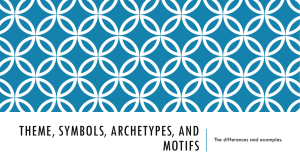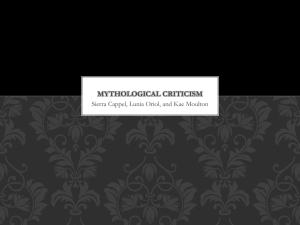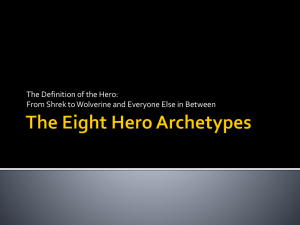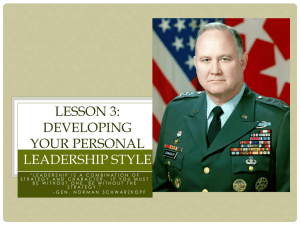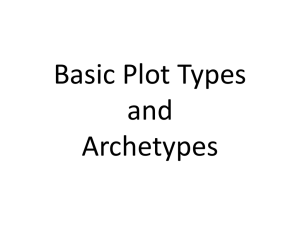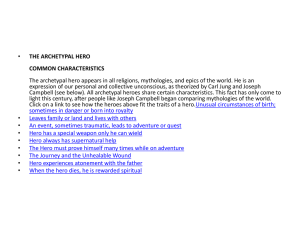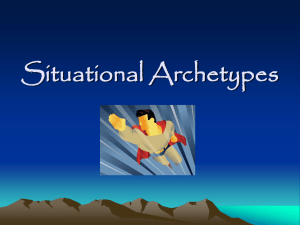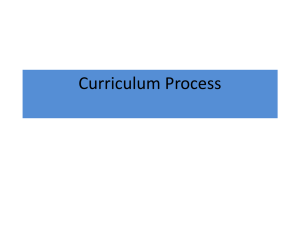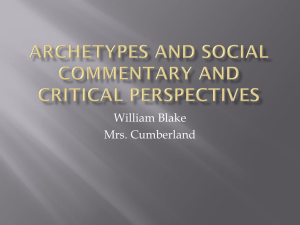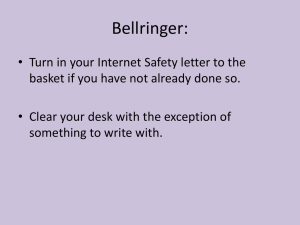Situational Archetypes Powerpoint
advertisement
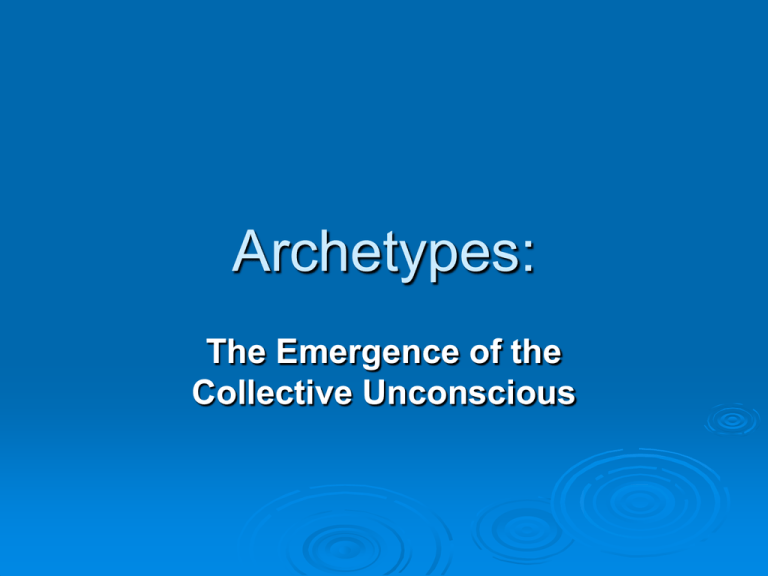
Archetypes: The Emergence of the Collective Unconscious Archetypes Recurring patterns of situations, characters, or symbols existing universally and instinctively among different cultures. Situational Archetypes Quest: A search for someone or something which, when brought back, will restore health or order. Situational Archetypes Task: A feat the hero must accomplish in order to fulfill the ultimate goal. Situational Archetypes The Initiation: A moment, usually psychological, where an individual comes into maturity, realizing his/her responsibility to solve a problem and the possible sacrifices he/she may have to make. Situational Archetype The Ritual: A ceremony that marks a rite of passage. Situational Archetypes The Journey: A hero goes in search of truth or information; sometimes he/she descends into a real or psychological hell to discover the truth. Situational Archetypes The Fall: descent from a high to lower state of being which involves a loss of innocence; often characters are rejected. Situational Archetypes Death and Rebirth: someone or something dies (literally or metaphorically), yet is accompanied by a sign of birth or rebirth. Situational Archetypes Nature vs. Mechanistic World: The natural order or nature is good; technology separates people from nature and is bad. Situational Archetypes Battle Between Good and Evil: These situations pit obvious forces which represent good/evil against one another. Usually, good triumphs over evil. Situational Archetypes Unhealable Wound: This wound, either real or psychological, cannot fully heal. The wound’s pain often drives the sufferer to desperate measures. Situational Archetypes The Magic Weapon: An object of power that helps the hero to combat evil, continue the journey, or prove his/her identity.


